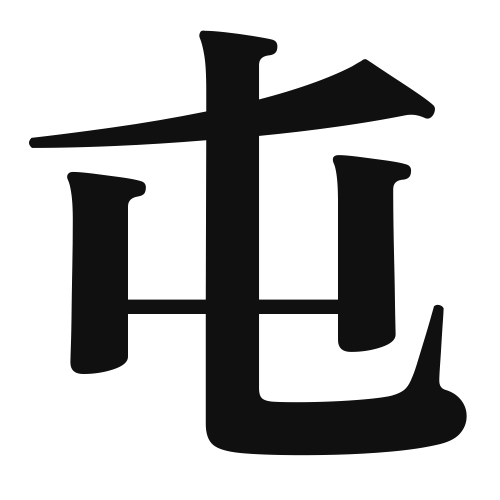1. Overview of Meaning
The kanji “屯” (pronounced “ton” in Japanese) generally means “to gather” or “to assemble.” It often refers to a place where people or things come together, such as a military encampment or a gathering of resources.
2. Formation and Radical
Formation of the Kanji: The kanji “屯” is a compound character that combines elements to convey its meaning. It is formed from the characters for “to gather” and “to settle,” reflecting the idea of assembling in one place.
Radical: The radical of “屯” is “囗” (the enclosure), which often relates to places or areas, indicating a gathering within a defined space.
3. Examples of Usage
Common Words and Phrases: Some common words that include “屯” are “屯田” (tonden – military farm) and “屯所” (tonsho – encampment).
Example Sentences in Daily Conversation:
- 「私たちは公園に屯して、ピクニックをしました。」(We gathered in the park for a picnic.)
- 「彼は屯所で新しい仲間と会いました。」(He met new friends at the encampment.)
4. Synonyms and Antonyms
Similar Kanji: A similar kanji is “集” (shuu), which also means “to gather” but is more general and can refer to gathering people or things in various contexts.
Opposite Kanji: An antonym is “散” (san), which means “to scatter” or “to disperse,” indicating the opposite action of gathering.
5. Cultural and Historical Background
Relation to Japanese Culture: The concept of gathering is significant in Japanese culture, especially in contexts like festivals, community events, and military history.
Proverbs and Idioms: One relevant proverb is “三人寄れば文殊の知恵” (sannin yoreba monju no chie), which means “three people together have the wisdom of Monju,” emphasizing the value of gathering and collaboration.
